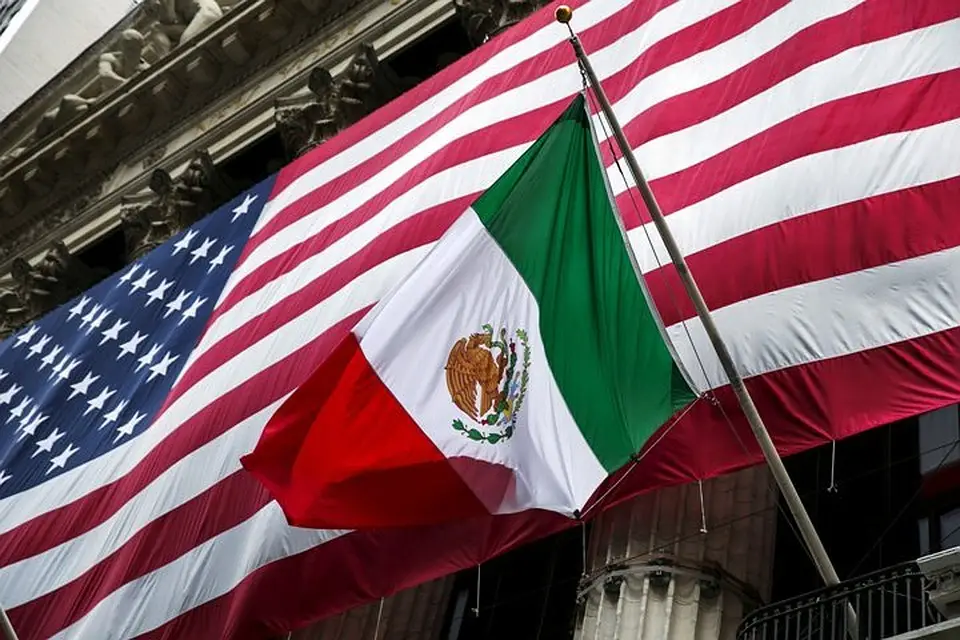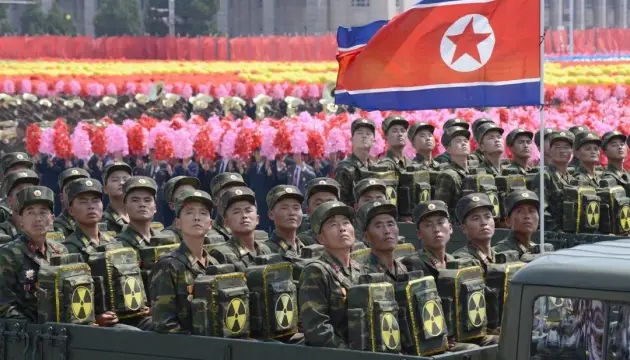US forms economic alliance with Mexico to counter China

China's economic woes and aggressive rhetoric are forcing the United States to look for new economic partners to confront the global challenges that the world community is facing
Recently, the Chinese economy has faced one of its largest stock market crises, with the Chinese economy having already lost $7 trillion. The suspension of Yi Huiman, chairman of the China Securities Regulatory Commission, on February 7 led to an unexpected outcry from agency employees and officials. Chinese experts argue that this move may be part of a broader strategic plan to revive the country's stock market. Despite support measures taken before the Chinese New Year, including a six-day exchange shutdown to restore investor confidence, these efforts did not yield the expected results.
Earlier it was reported that Chinese President Xi Jinping intended to hold a meeting with regulators, including the CSRC. It is currently unknown whether Yi Huiman's suspension was the result of this meeting, as no information about the events during it was recorded.
Such an important resignation may indicate a more restrained approach of the Chinese authorities to solving the problems of the financial crisis or may indicate certain difficulties in the country's political leadership. Indeed, Beijing has reason to worry, as recent polls show that investor confidence in China is falling.
Foreign companies are now withdrawing more money from China than they are investing - China's slowing economy, low interest rates and geopolitical struggle with the United States have raised doubts about the country's economic potential. The State Administration of Foreign Exchange of China said that during the year to September 2023, China saw a net outflow of long-term investments worth more than $140 billion."
Even Chinese companies are not investing in China, but capital is actively flowing from China to Mexico. In 2023, Mexico took China's place among the leaders in exporting goods to the United States. According to information released by the U.S. Department of Commerce, the value of goods imported from Mexico amounted to more than $475 billion. This is almost 5% higher than in 2022. At the same time, imports of goods from China decreased by 20%, reaching $427 billion.
The Biden administration has called on US companies to consider alternative sources of supply in allied countries and to consider bringing production back to the United States as an alternative to offshoring to China.
Mexico was one of the countries that took advantage of this refusal to depend on Chinese factories. Some Chinese manufacturers have set up shop in Mexico, taking advantage of the US-Mexico-Canada trade agreement that allows duty-free trade in North America. However, to counteract Chinese expansion, the United States and Mexico have agreed to monitor foreign investment and regularly exchange information on their review processes.
U.S. Treasury Secretary Janet Yellen said that the U.S. is becoming "more deeply integrated with Mexico." The volume of bilateral trade between the two countries is projected to reach more than $850 billion in 2024, and the United States is Mexico's main trading partner. China has also emerged as a fast-growing source of foreign investment in Mexico, increasing its investments in Mexican companies.
The U.S. Treasury Department said the agreement covers "national security risks" that may arise from certain foreign investments, including in technology, critical infrastructure and sensitive data.
For Mexico, this agreement opens up opportunities to negotiate lower remittance costs, which are a key source of revenue for the country. Mexico's Finance Minister, Rogelio Ramirez de la O, noted that both countries will benefit from lowering the cost of remittances that foreign workers send home across the border.
In 2023, Mexico expects to receive a record amount of remittances - more than USD 64 billion, which is almost 10% more than in the previous year. Of these, 96% will come from the United States, accounting for almost 4% of Mexico's GDP.
Based on the above, we can conclude that the United States will continue to strengthen cooperation with Mexico to reduce its dependence on Chinese exports and create a new powerful ally in this economic struggle with China. At the same time, the recent incident on the Mexican-American border shows that the issue of refugees is extremely critical for the United States. Therefore, Washington can use investments in Mexico as a weapon to create more jobs in the country and, as a result, minimize the number of migrants.











